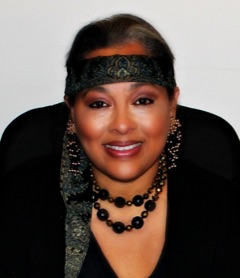
Woodbury University in Los Angeles, like so many others, quickly shifted its conventional face-to-face operations to online education in response to the COVID-19 global pandemic. Aside from the first-tier issues of bringing all faculty up to speed and ensuring that students had internet connection and the appropriate software and hardware to meet their course requirements remotely, some additional challenges surfaced.
One of those was the need to proctor examinations remotely. At the click of a keyboard button, a world of proctoring services revealed itself online once we started looking into the options.
Ultimately, our academic affairs and IT experts collaborated to identify tools that could be used in classes whose faculty members felt it was critical to measure student learning by assessing whether they were individually—without any help from others—capable of solving complex problems.
Read: CARES Act offers billions to aid college students
Are proctored exams still effective?
Taking a step back, I recall first being confronted with the exam proctoring query by one of my faculty members teaching accounting and finance. As a management educator by faculty discipline, I never had exams proctored. For as long as I recall, my students always completed assigned readings at home, posted their responses, and subsequently participated in class dialogues about their takeaways. They also frequently participated in individual and group projects, which they presented in class. Final projects consisted of essay questions, which were oftentimes reflective, or research on a topic and a presentation of findings.
Interactive learning seems to be the way to go in most organizational behavior, management and leadership courses, and I personally value that style because it resembles the world of work so well. In almost any professional environment, this is exactly what is expected from us: working on projects, either alone or with others, and sharing the results with those in charge.
Let’s take a critical look at how we have implemented education so far and what we could or should be doing to make it more rewarding for all parties—including the ones on the receiving end, our students.
While I, too, have sat through my share of math, statistics, accounting, finance, economics and other heavily proctored exams as a student, I recently found myself questioning the effectiveness and usefulness of such formats. The duality of this situation struck me hard: On one hand, I could understand the desire of professors to ensure that students understood and properly internalized the ratios and equations learned in class, and on the other, I couldn’t help but wonder what the sense was in forcing anyone to hammer into their brains complicated constructs, knowing that they would be discarded as soon as the exam was over.
Consider the post-college world
It’s not hard to envision the post-college world, where accountants, financial advisors, economists, statisticians and other number crunchers have access to books or online resources—just like physicians when they are puzzled by patients’ symptoms, or organizational leaders when they face unforeseen challenges, such as the COVID-19 pandemic. In all of these instances, people come together and discuss solutions, knowing that multiple minds accumulate greater insight and solution capacity than just one.
Read: Updated: 63 free higher ed resources during coronavirus pandemic
My foundational concern here is that many educators may have become lost in a morass of pedagogical prescriptions and tightly formulated learning outcomes, thus detaching them from the core purpose of education, which I believe is preparing upcoming generations for successful performance in a constantly changing society.
If we think back to the foundation of education, it was invented as a means of keeping children constructively and pleasantly occupied while their parents were working on the land. The trend evolved and expanded into a complete system.
Move beyond one-size-should-fit-all system
Today, many educators take themselves so seriously that it would be funny if there was not so much at stake. I cannot help but refer to Sir Ken Robinson, a celebrated international advisor on education. In his books, articles, TED Talks and numerous interviews, Robinson calls for more creativity in education, based on his analysis that our current education system has regressed into a one-size-should-fit-all system.
Read: Medical schools send early graduates to fight coronavirus
While I am as disturbed by any emergence of student cheating as any other educator, I believe there should be constructive ways for us to address this trend. Among them: making our teaching material more relatable and less alien to students, and enabling presentations of solutions in which every team member can provide explanations.
What could come out of this unprecedented stay-at-home COVID-19 era is for us, as educators, to take a critical look at how we have implemented education so far and what we could or should be doing to make it more rewarding for all parties—including the ones on the receiving end, our students.
Joan Marques is dean of Woodbury University’s School of Business in Los Angeles.





